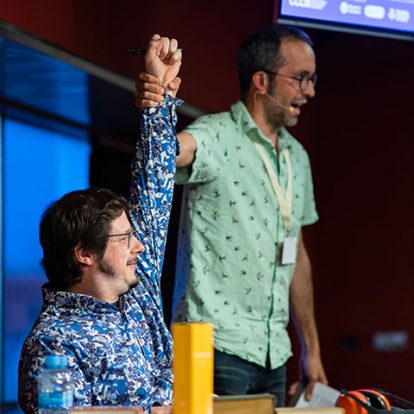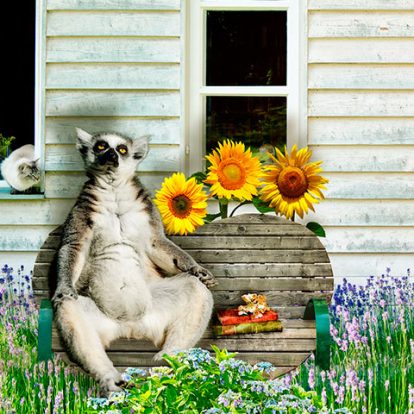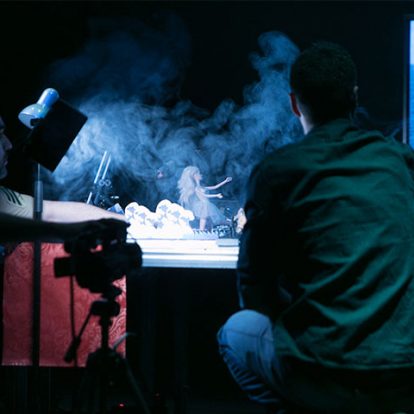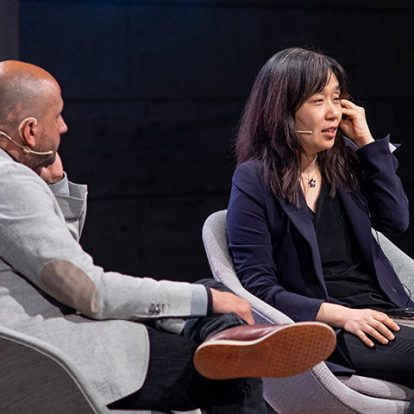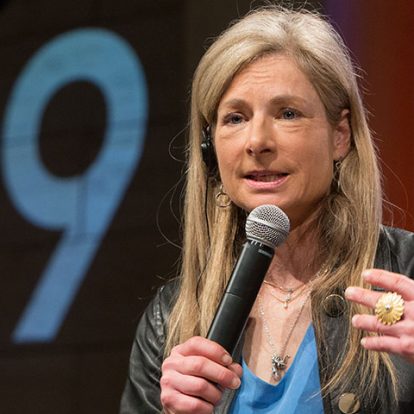150 Years Dreaming About Alice
Eva Rexach (K Team)
03 March 2015
Kosmopolis pays tribute to one of the great works of universal literature, a tale dreamed up one summer afternoon that has transcended genres and cultures and that, 150 years later, continues to be fiercely current.
After the works of Shakespeare, Alice’s Adventures in Wonderland and its sequel, Alice Through the Looking Glass, are the two most translated and quoted books ever written in English. Based around the most famous work by Lewis Carroll there have been plays for theatre, films, video clips, songs, operas, performances with marionettes, tourist routes, exhibitions, symposia, concerts, short films, videogames and ballets. Alice, which emerged as a children’s story one hot summer afternoon is still, 150 years later, a fascinating and enigmatic work into which its author slips a subtle criticism of Victorian society while at the same time advancing his own ideas of surrealism, psychoanalysis and relativist physics.
At Kosmopolis we want to pay tribute to this story written for smart children and we will do so from different disciplines: from music to physics and from food to literature.
The Dream of the Red King and the Spirit of Alice
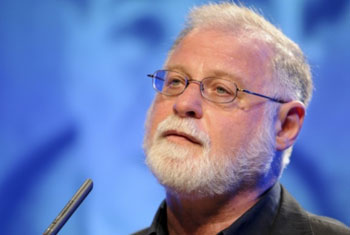
Alberto Manguel. (CC BY-NC-ND 2.0) Casa de América
Every time that Alberto Manguel rereads Alice’s Adventures in Wonderland, he discovers a new meaning in it. His fascination for the story and its main character is such that his own daughter is called Alicia and in one of his most famous books, El sueño del Rey Rojo, each chapter starts with a quote from the book by Carroll. Manguel, then, is a most appropriate person to talk about the 150th anniversary of Alice, of the book’s numerous interpretations, its literary devices, its jokes and its place in universal culture.
And when we talk about “universal” we are referring not only to a story that transcends frontiers and languages, but also a narrative that is a good example of union between science and letters. The characters at the Mad Hatter’s tea party live trapped in tea time: a model of the cosmos in which time stands still. Alice falls down the rabbit hole and questions herself about the fall, just as Einstein considered gravity; and her body grows and shrinks as she eats a cake and drinks from a bottle, in the same way as the universe expands. Carroll, who had mathematical training, was obsessed with the force of gravity, astronomy and the passing of time, and for that reason, physics featured significantly in the story.
Through physics; specifically, through light, the Institut de Ciències Fotòniques will enlighten us with another Alice. The Alice of paradoxes, riddles and puns that precedes, according to some, Dadaism: a family workshop in which chance, present in physics, will also be present in the texts created by the participants. Then it will be the musicians who, based on these lyrics, produce the songs.
Also letters, and poetry, are to be found at the base of the slam and for that reason the Gran Slam Barcelona will again bring us the best poets of the moment. Alice will travel to Wonderslam hand in hand with Bohdan Piasecky, Nilson Muniz, Isa Garcia, Michael James Parker, Salva Soler, Diego Mattarucco, Kristoph Horvath, Seis en raya and Set sentits, all accompanied, as always, by Payaso Manchego.
Glasses, cakes… and films
Alice’s Adventures in Wonderland is full of references to the act of eating and Carroll used sweets to explain the syllogisms in his book The Game of Logic (1887): he knew that children love eating, and for that reason he added the chapter on the mad tea-party, which was not in Alice’s Adventures Under Ground, the original that he gave to Alice Liddell on Christmas Day 1864. It is, then, inevitable, that the food subject also sneaks in to Kosmopolis when we talk about 150 years of Alice, and for this we will be joined by Mina Holland, author of The Edible Atlas and editor of the food supplement of The Guardian newspaper. Holland will be talking to us about food in literature and unmissable gastronomic references.
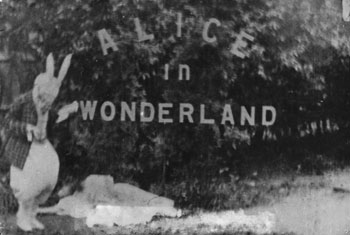
Alice in Wonderland, 1903 by Percy Stow & Cecil Hepworth
And we could not say farewell to Alice without making allusion to the hundreds of audiovisual documents that have been created based on her adventures. For example, did you know that in 1933, two Hollywood legends, Cary Grant and Gary Cooper, took part in a cinematographic version of Alice in Wonderland, whose script was written, no more no less, than by Joseph L. Mankiewicz? We will not be screening this version, but we will give you the opportunity to see the first adaptation of the story, produced in 1903 by Percy Stow and Cecil Hepworth, an absolute gem recently restored by the British Film Institute, as well as other feature films and short films based directly or indirectly on the story by Carroll. This year, Alpha Channel will be more illustrated than ever before.

